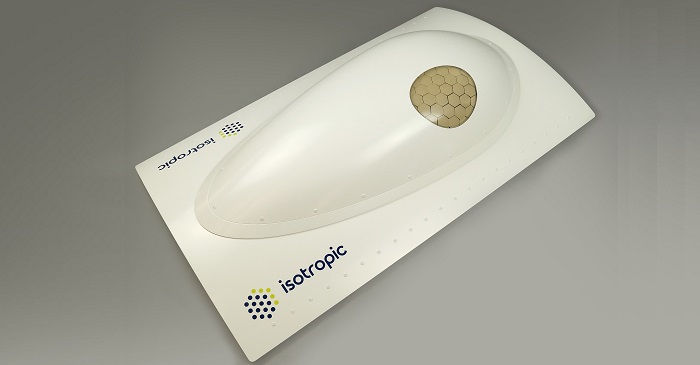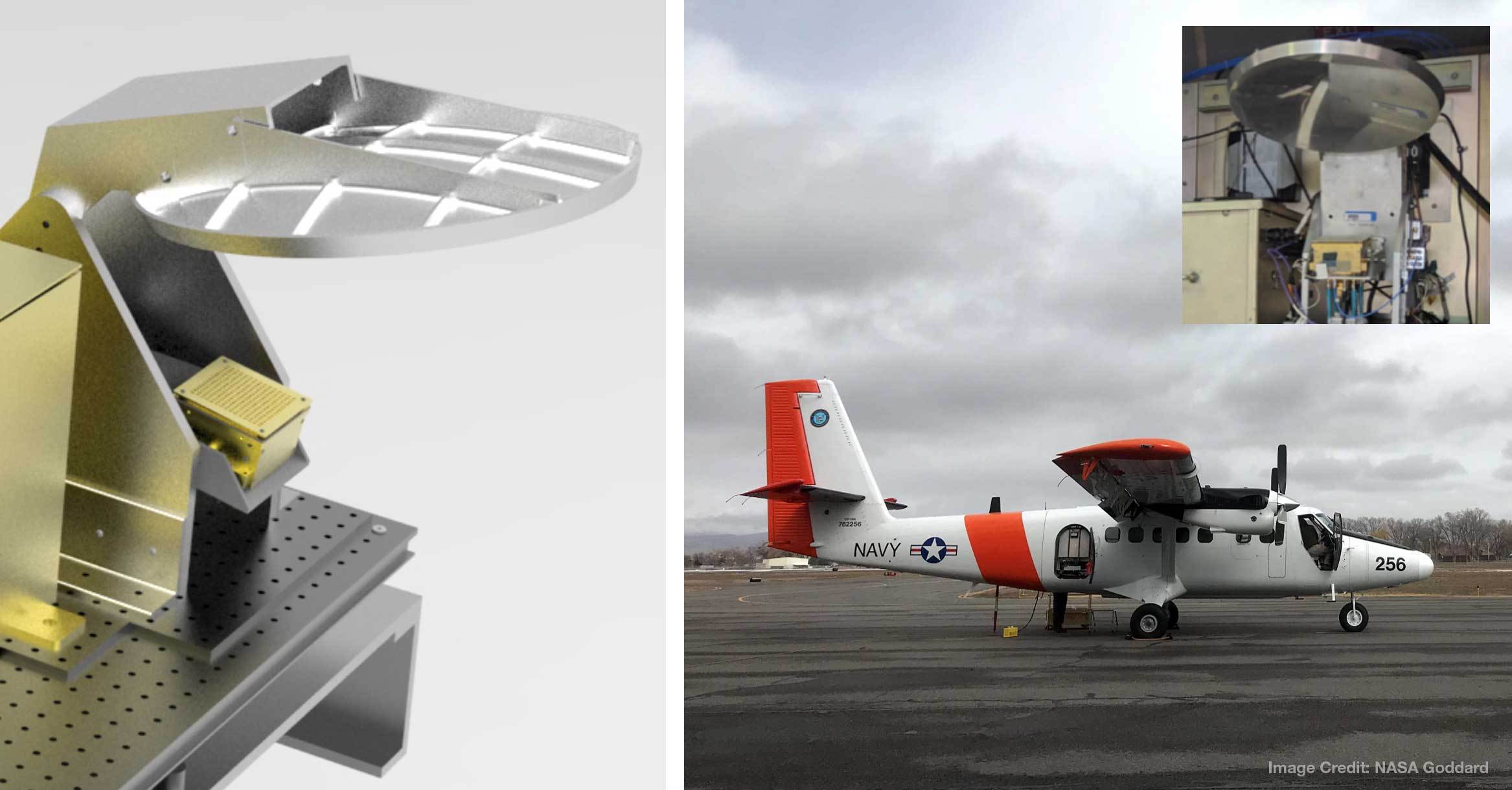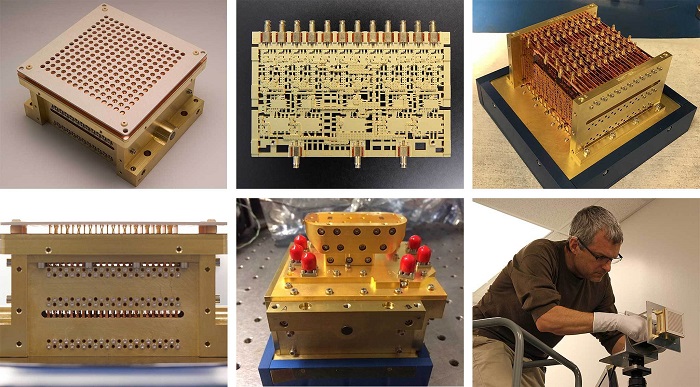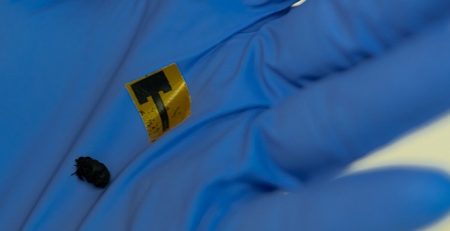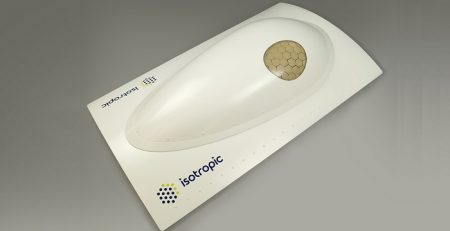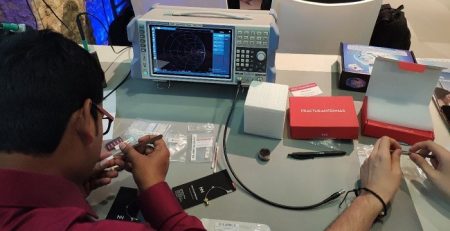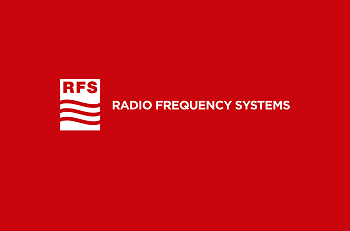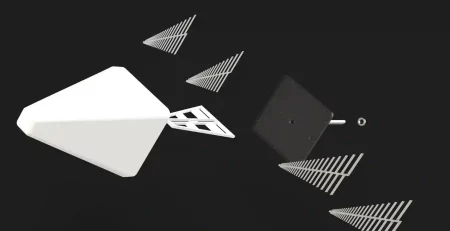Cubic Using Wide-band Multi-frequency Antenna Technology for NASA’s Snow Measurement System
Cubic Corporation, a provider of integrated solutions for transportation and defense C4ISR, has used Nuvotronics’ (a company they acquired in 2019) advanced multi-frequency antenna technology to enable the successful validation of NASA Goddard Space Flight Center’s (NASA-GSFC) Snow Water Equivalent Synthetic Aperture Radar and Radiometer (SWESARR).
Operating within Cubic’s Cubic Mission Solutions (CMS) business division, Nuvotronics provides advanced multi-frequency antenna technology to enable NASA’s next-generation snow measurement system to operate over six frequency bands from a single antenna aperture.
Snow is critical to the Earth’s ecosystem. It reflects sunlight back to space, insulates Earth’s surface and delivers life-sustaining water by means of snowmelt. Currently, NASA does not have a global high-resolution satellite mission to track and study the amount of water contained in snow, known as Snow Water Equivalent (SWE). To cost-effectively meet this gap, NASA scientists need innovative airborne instruments to overcome challenges of differing terrains, depth and melt conditions.
In winter 2019–2020, Nuvotronics provided wide-band multi-frequency antenna technology for use in an airborne data validation study for the SWESARR instrument during the NASA SnowEx campaign. The study collected ground measurements at multiple locations and analogous airborne measurements using a DHC-6 Twin Otter Aircraft operated by the Naval Postgraduate School’s (NPS) Center for Interdisciplinary Remotely Piloted Aircraft Studies (CIRPAS). Nuvotronics’ microwave antenna technology-enabled SWESARR to operate over six frequency bands from a single antenna aperture, ensuring overlapping measurements. Multi-frequency operation increases the quality of data collected, at a lower cost. Nuvotronics’ technology collected natural radiation coming from layers of snow, providing information that is combined with active radar data to infer the volume of water held in the snowpack.
Nuvotronics’ specific contributions include an X-Ka Band 11×12 element line array and an X-W band Vivaldi array demonstrator. NASA-GSFC integrated the X-Ka band array with a 0.34-meter reflector and a Ka-band digital beamforming back-end into the airborne instrument on an active roll compensation platform developed by another partner company. Nuvotronics’ PolyStrata technology-enabled seamless integration, rich data collection and excellent noise performance in a compact radiometer.
Cubic’s participation demonstrates how their highly innovative technology has enabled next-generation, multi-band radiometry instrumentation to support the measurement of precipitation rate; integrated water vapor; cloud liquid water and ice; ocean surface wind speed; snow water equivalent; sea ice concentration; and land surface temperature, which has never been done before. This also proves the air platform worthiness of PolyStrata enabled advanced systems. The achievement of these critical milestones demonstrates Cubic’s ability to leverage PolyStrata technology to build wide-band phased arrays from X to W band.
Nuvotronics is continuing its efforts to advance NASA’s next-generation instruments to track SWE. This milestone and successful airborne demonstration of capability is a key feedback point. SWESARR is developed through NASA Earth Science Technology Office (ESTO) Instrument Incubator Program (IIP) and Goddard’s Internal Research and Development Program. Funding for SnowEx flights was provided by the NASA Terrestrial Hydrology Program.

